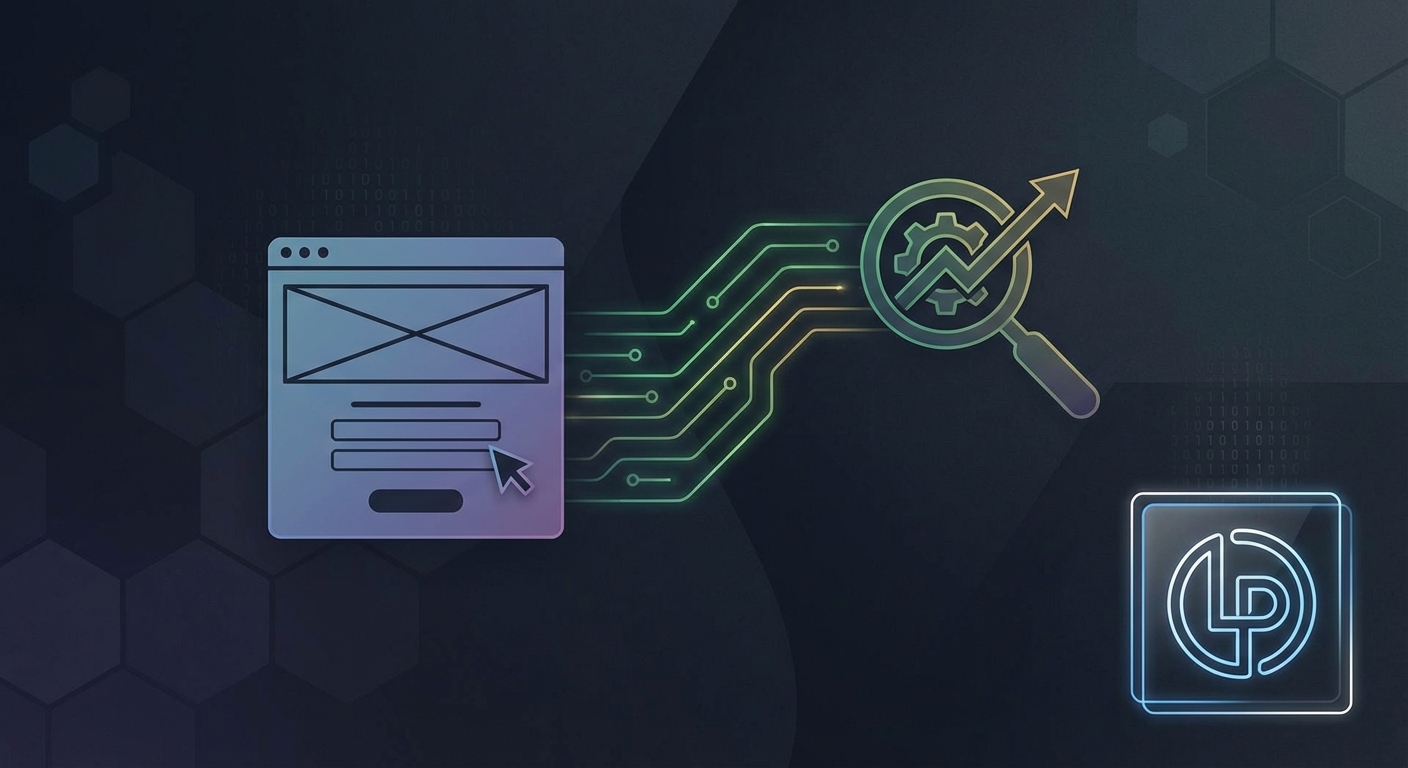AI-powered semantic SEO and content generation
TL;DR
- This article covers how ai is changing seo through semantic analysis and automated content creation. It includes practical strategies for leveraging ai to improve website rankings, enhance content relevance, and streamline content workflows, with a focus on tools and techniques that security managers, cisos, and software developers can directly apply.
Understanding Semantic SEO and the Role of AI
Okay, let's get this show on the road. Ever feel like search engines are reading your mind? Well, that's kinda the goal with semantic seo.
Semantic SEO is all about understanding user intent behind a search query, not just matching keywords. It's a shift from focusing solely on keywords to understanding the context and meaning of the content.
Think of it like this: traditional seo is like shouting keywords, hoping someone hears you. Semantic seo is about having an actual conversation, understanding what the other person really wants. Like, if someone searches "best treatment for flu" a semantic search engine understands they're looking for remedies, not just articles mentioning the word "flu."
How's it different then? Traditional SEO often relies on keyword stuffing and exact-match phrases. Semantic seo is more about creating comprehensive, high-quality content that answers a user's questions thoroughly. It's about building a web of interconnected topics, showing search engines your expertise.
Context matters, a lot. It's not just about what you say, but how it relates to other concepts. For example; in healthcare, a page about diabetes should also link to related topics like diet, exercise, and medication. A retail site selling "organic coffee" might link to pages about fair trade, sustainable farming, and different brewing methods. This builds a rich, interconnected knowledge base.
AI is a game-changer for semantic seo. it can analyze massive datasets and identify complex relationships between words and concepts, something humans just can't do at scale.
ai can analyze language nuances through natural language processing (nlp). This means understanding sarcasm, intent, or even subtle emotional cues in a search query. Think of how customer service chatbots use nlp to understand what a customer is actually complaining about, even if they don't use the "right" keywords.
Machine learning algorithms continuously improve search accuracy and relevance. As SEOmator.com notes, ai algorithms learn from data patterns to improve over time, making search results more relevant.
Using AI for semantic seo can seriously boost your online presence.
Improved search rankings and more organic traffic are a big win. By creating content that truly understands user intent, you're more likely to rank higher in relevant searches.
Enhanced user experience is another benefit. When users find exactly what they're looking for; they're more likely to stick around, explore your site, and maybe even convert.
It helps you become an authority. By covering topics in depth and showing the relationships between them, you build trust and credibility with both users and search engines.
So, basically, ai helps you create better content, understand your audience, and ultimately get more traffic. Now, let's dive into how ai actually does this...
AI-Powered Content Generation: A New Era
Alright, let's talk about how ai is changing the content game – it's not just about writing anymore, it's about generating content. Think of it as going from crafting each piece by hand to having a whole factory at your fingertips.
There's a bunch of ai writing tools out there, like chatgpt, copy.ai, and others, all trying to make content creation easier. These platforms have some cool features:
- They can help you write blog posts, articles, and even website copy in a fraction of the time it use to take. Like, if you're in healthcare, you could use ai to quickly draft explanations of complex medical terms. Or, if you're in retail, generate product descriptions for hundreds of items in minutes. it's kinda wild.
- They can analyze existing content and suggest improvements for seo. MarketMuse is great for planning content and identifying gaps.
- Some, like Writesonic, uses Generative Engine Optimization (geo) to help you create content that's built to rank. Generative Engine Optimization (geo) is a process where AI analyzes vast amounts of data to understand what makes content rank well, then uses that knowledge to generate new content that's optimized from the start. According to Brainvire, these tools can analyze large datasets and provide actionable insights.
But, you can't just let ai run wild. You need to guide it, like training a puppy.
- Crafting good prompts is key. Be specific about what you want the ai to do. Backlinko suggests including the persona, context, task, and format in your prompts for best results. (How to Use AI for Writing Exceptional Content (7 Best Practices))
- Make sure your ai-generated content is accurate and relevant. Don't just blindly trust it. Fact-check, fact-check, fact-check!
- Optimize that content for semantic seo, so it actually understands what you're trying to say.
Many organizations are using ai to generate initial drafts of blog posts or articles, then having human editors refine and fact-check the content. This saves time and helps them produce more content, faster.
Now, let's talk about the downsides of using ai for content... it's not all sunshine and rainbows, ya know?
Practical Strategies for Implementing AI in Your SEO Workflow
Alright, let's get practical – how do we actually use ai in our seo workflow day-to-day? It's not just about fancy tools, it's about integrating ai into your existing processes.
- Keyword Research and Topic Discovery: ai can sift through mountains of data to spot relevant keywords and trending topics that you might miss. Instead of just guessing what people are searching for, you can use ai to analyze search intent and user behavior. Imagine using ai to create a data-driven content calendar. For example; a financial services company could use ai to identify trending topics in personal finance, like "best high-yield savings accounts" or "tax-advantaged investment strategies," then create content around those topics.
- Content Optimization and Semantic Analysis: You can use ai to analyze your content for semantic relevance and keyword density. It's like having a super-smart editor that tells you if your content actually makes sense to search engines. ai can also optimize meta descriptions, titles, and headings with suggestions that are both user-friendly and seo-friendly. For example, a retail site selling skincare products could use ai to ensure their product descriptions include relevant keywords like "anti-aging," "hydrating," and "cruelty-free," while also making the descriptions engaging and informative.
- Performance Monitoring and Reporting: Forget manually tracking seo metrics in spreadsheets. ai-powered analytics dashboards can track key metrics and identify areas for improvement. It can also generate reports to show the impact of ai-driven seo strategies, so you can prove that all this ai stuff is actually working. For example, a healthcare provider could use ai analytics to track which pages on their website are generating the most leads for new patients, then optimize those pages further to improve conversion rates.
Want to get a quick snapshot of your site's health? PingUtil offers a completely free ai-powered website seo, performance, security, and accessibility analysis. You get instant, professional-grade insights without even having to register. Use it to perform Advanced seo Audit, Security Vulnerability Check, Speed & Performance Analysis, Mobile & Accessibility Audit, Free Accessibility Audit, and Free Competitor Analysis. While PingUtil is a great tool for general SEO analysis, its direct connection to AI-powered semantic SEO or content generation isn't its primary focus; it's more of a comprehensive SEO analysis tool.
So, basically, ai can help you at every stage of the seo process, from finding keywords to tracking your results. Now, let's look at how ai can help you with seo analysis and optimization.
Choosing the Right AI Tools for Your Needs
Picking the right ai tools? It's kinda like choosing the right weapon for a cyber fight – gotta know your enemy, right?
Cost, Cost, Cost: Let's face it; budget matters. Some ai tools have you paying per use, others are monthly subscriptions. A small software shop probably can't swing the same expensive platforms a fortune 500 company can. Gotta find that sweet spot.
Ease of Use: If your team can't figure out how to use the darn thing, what's the point? Is it something that plugs right into your existing setup, or is it going to be a whole new beast to train everyone on?
Features That Actually Matter: Don't get blinded by the bells and whistles. Does it actually do what you need it to do? If you're mainly worried about brute‑force attacks, you need something that's laser-focused on that, not a general-purpose tool.
Support When Things Go South: When (not if) something breaks, is there someone you can call? Good customer support can be a lifesaver. and don't forget training resources!
There are a lot of players in the AI tool space, and some focus on SEO while others on security. It's important to clarify your needs.
- Semrush: While not purely an AI tool, Semrush integrates AI features for keyword research, content optimization, and competitor analysis. It's a comprehensive SEO platform that can help with many aspects of your SEO workflow.
- Alli AI: This tool focuses on automating technical SEO tasks and content optimization, leveraging AI to identify and implement improvements.
- MarketMuse: This platform is excellent for content planning, topic mapping, and content gap analysis, using AI to understand content effectiveness and identify opportunities.
It's not a one-size-fits-all, so you need to find the tools that fit your specific needs and budget.
So, you've got your tools. Now what? Let's look at some real-world examples of how companies are using ai for seo...
The Future of SEO: AI and Semantic Search
Okay, so what's next for seo? ai is already shaking things up, but we're only seeing the beginning.
The growing importance of natural language processing (nlp) and understanding is huge. It's not just about keywords anymore; it's about understanding the intent behind the search. To really understand what people wants- that's the key.
The rise of ai-powered voice search and visual search is also changing things. think about it; people are increasingly using voice assistants and image recognition to find what they need. SEOs need to optimize for these new ways of searching.
The potential for ai to personalize search results and content experiences is another big trend. ai can analyze user data to deliver search results and content that's tailored to individual preferences; and that's kinda creepy, but effective.
Developing a data-driven mindset and skillset is crucial. SEOs need to be able to analyze data, understand ai algorithms, and make data-driven decisions. It's not just about gut feelings anymore, it's about cold, hard data.
Investing in ai tools and training is also important. There's a ton of ai-powered seo tools out there, and SEOs need to learn how to use them effectively. As mentioned earlier, ai algorithms learn from data patterns to improve over time, making search results more relevant.
Adapting to the evolving search landscape and user behavior is key. Search engines are constantly changing, and SEOs need to be able to adapt to those changes and stay ahead of the curve.
Ethical and Secure AI Implementation in SEO
As AI becomes more integrated into SEO, it's crucial to consider the ethical and security implications.
- Avoiding bias and discrimination in ai algorithms is a must. ai algorithms can perpetuate biases if they're not carefully designed and monitored. We need to make sure that ai is used fairly and ethically.
- Protecting user privacy and data security is also critical. ai algorithms collect and analyze user data, so it's important to protect that data from misuse.
- Ensuring transparency and accountability in ai-driven seo practices is also essential. Users need to understand how ai is being used to personalize their search results and content experiences.
- Understanding the security implications of ai seo tools is vital. These tools can be vulnerable to attacks, so security managers need to be aware of the risks.
- Ensuring data privacy and compliance with regulations is also important. ai seo tools often collect and process personal data, so it's important to comply with privacy regulations like gdpr.
- Collaborating with seo teams to implement secure and ethical ai practices is crucial. Security managers, cisos, and software developers need to work together to make sure that ai is used responsibly.
The future of seo is definitely ai-driven. By embracing ai and using it responsibly, we can create better content, improve user experiences, and get more traffic.





